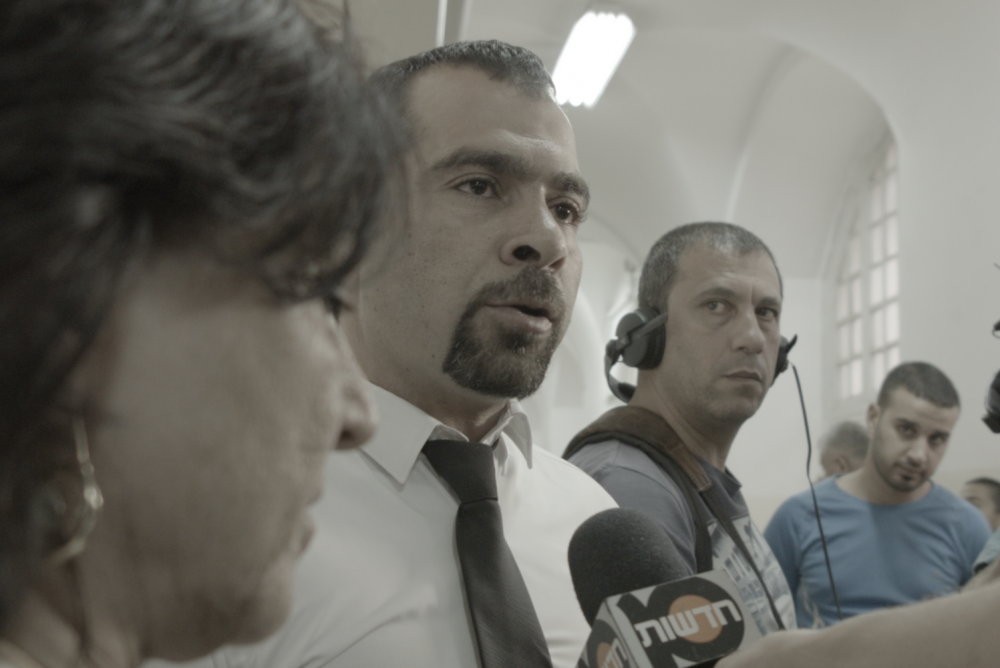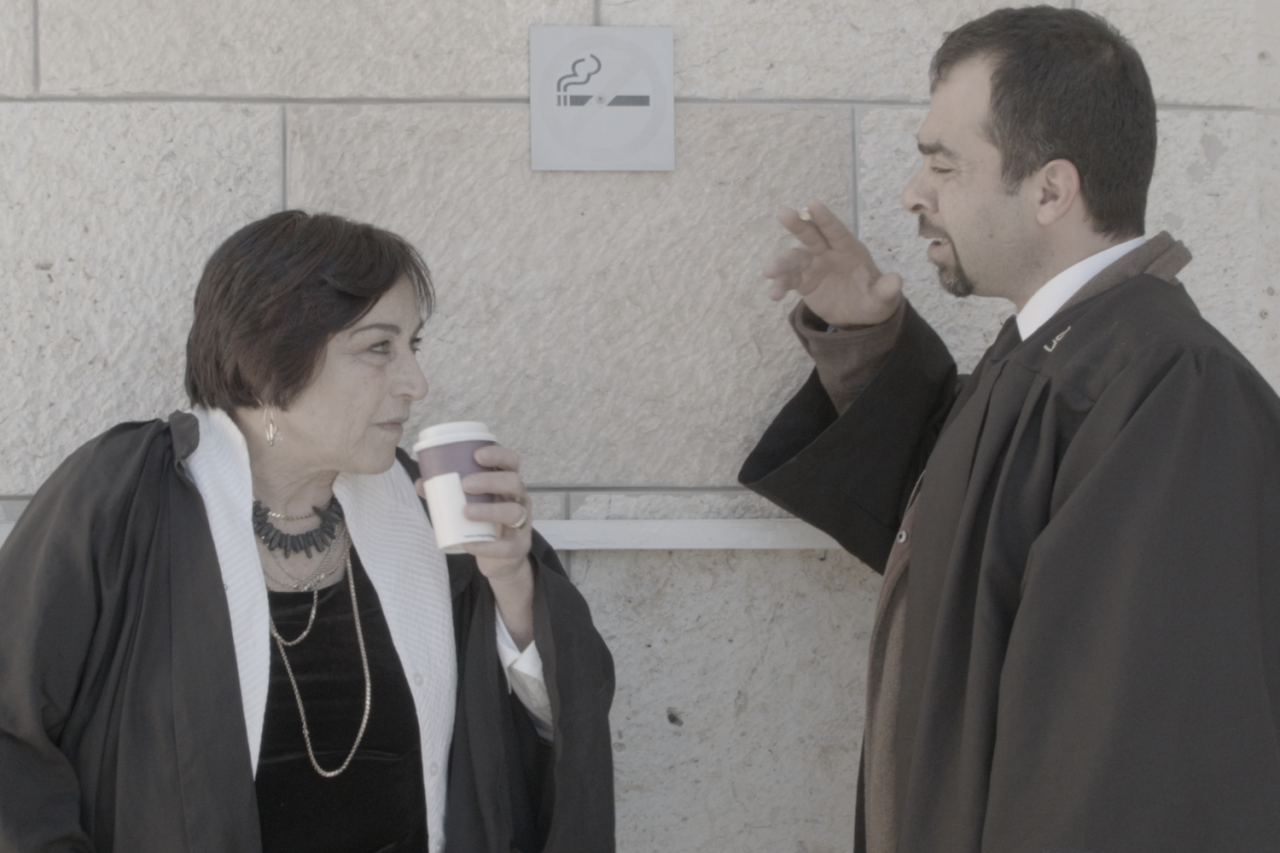The following is a letter by Tareq Barghouth, a Palestinian political prisoner who in July 2019 was sentenced to 13.5 years in prison, after being convicted of committing shooting attacks against Israeli soldiers in the occupied West Bank. The letter was written from inside his prison cell as a message to the occupying society.
In the world in which I am supposed to spend the next 10 years, the prisoner uses various different tricks to cheat the hands of time. The most effective trick is to recover one’s memories. In so doing, the prisoner kills two birds with one stone: on the one hand, he passes the time and doesn’t allow feelings like boredom and emptiness to take over his mind; and on the other, he examines the details of his memories and learns from them.
As the years have passed, I have immersed myself deeper and deeper in my memories. One scene stands out among all the others. The event occurred at the start of the First Intifada, in the village of Al-Eizariya (Bethany), when I turned 12. That day, I wore a special shirt: one sleeve black and the other green, most of the shirt white but with a red pocket on the left side. I sat with the kids from the village next to the market, where they had recently built a new bus stop, and we had fun sitting there, on the bench.
The attraction was to watch the new cars of the residents of the Israeli settlement of Ma’ale Adumim driving on the main throughway of the village, on the way to Jerusalem. Every one of us liked a particular car, and we even chose a nickname for ourselves based on our favorite car model. I, for example, chose the nickname Subaru.
While we sat there, a military jeep passed by. Suddenly, the jeep stopped next to us. Two armed soldiers got out of the car and raced toward us. They grabbed me by the arm and dragged me to the jeep. One of them started to yell as he gripped my cheek. I didn’t understand the meaning of his actions. Slowly I started to realize that the soldiers’ anger was connected to the shirt I was wearing. They forced me to take it off, and took it away.
In that moment I was deeply embarrassed, half-naked, on the main street of the village. One of the soldiers picked me up and sat me down on the hood of the jeep, then tied my hands to the iron bar mounted on the front of the car that is meant to protect soldiers from snipers. The soldiers started to slowly drive around the village roads. After a long drive, the jeep stopped, the soldier who tied my hands got out, stood in front of me, and slapped me. He asked me, in Arabic, where my family’s house was. The house was a few blocks away. I imagined people seeing me in this situation.
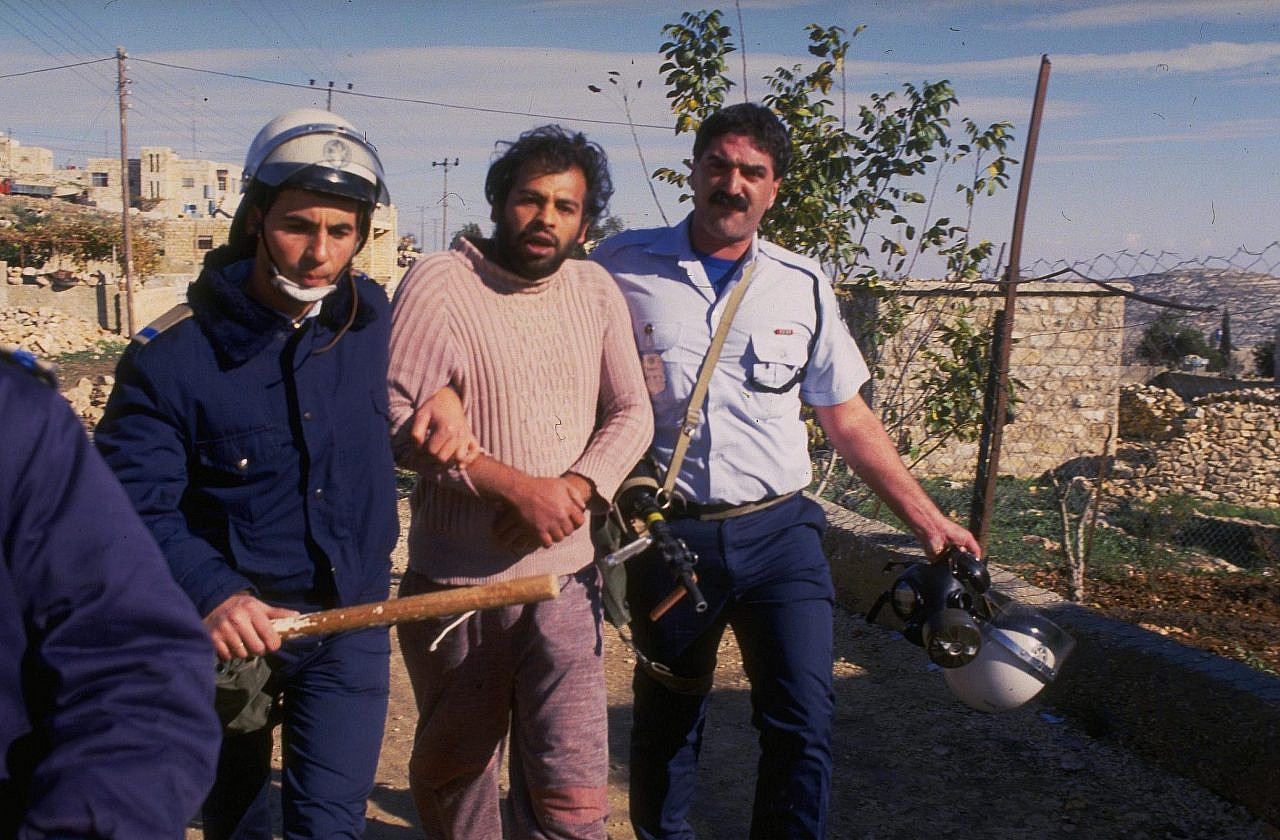
Tears started to stream down. I was suffocated by the humiliation. When we got to my house, my mother saw what was happening and filled the neighborhood with her cries. The soldiers released me and left as if nothing had happened. I had a similar shirt at home, and my mother tore it to shreds.
My response to the humiliation was initially to start hanging up Palestinian flags on cables and electricity poles. This turned into an obsession, and my reaction didn’t stop there. Three years later, I was arrested and sentenced to a year in prison after I was convicted of setting fire to a rental car belonging to an Israeli company.
When I was released from prison, reality was completely different. Dramatic changes had turned the political situation upside down. The Oslo Accords and the peace process had taken off. Palestinians gave olive branches to Israeli soldiers instead of throwing stones and Molotov cocktails. Palestinian flags were waved without any disturbances. I said to myself that the dream had come true, that finally we would be free and equal like every other nation.
My experience of arrest and interrogation, which started in my childhood and ended as I became an adult, pushed me to study law.
Indeed, I got lucky and received a scholarship to study in Morocco. There, life was totally different. More normal. Without soldiers, checkpoints, or ethnic hostility. People lived their lives happily, without destroying the lives of others.
I finished my studies and returned to reality. The Second Intifada broke out. I settled for observing the situation from afar. I dedicated all of my efforts to studying Hebrew and preparing for the bar exam. My admission was delayed for a few years because of my criminal record and security background, but eventually I became a member. My goal was to represent security prisoners.
When I was arrested at the end of the First Intifada, they had held me at the Dahariya military interrogation facility in the Hebron district. The slaughterhouse – that’s how the people held there for interrogation referred to it. I lost consciousness there a few times from the beatings I took from the interrogators. I turned 16 in there.
After 18 days of torture, the door of the “shabah closet” (the term for the binding of the detainee’s hands and feet to a chair) opened. The military prison guard, who forced the detainees to call him “Captain,” told me I had a hearing. We walked a short distance in the facility until we got to a room packed with soldiers and civilians. At the doorstep a man approached me and quickly said one short sentence: “Tarek, I am the defense attorney and your detention has been extended by 30 days.” The captain returned me to the closet and that was the end of the hearing.
That evil behavior motivated me to fight over every day and every hour of detention, especially in the case of minors. It is true that the interrogation methods have changed since the 90s, but there is still a huge disparity in the two systems of law enforcement between the river and the sea.
Despite this bleak reality, I believed there was a chance to take part in doing justice. This sense gradually withered with time. In military courts, the possibility of justice quickly evaporated. Any reasonable jurist can smell the stench of racism already from the entrance gates, where the families of Palestinian detainees wait.
This is the tip of the spear of Israeli apartheid, freed from all humanitarian restraints. In civilian courts, this wasn’t so visible to the naked eye. There, the work of defense attorneys dealing with Palestinian security cases was conducted under reasonable conditions. There was more room for maneuver than in military courts. Although the monster of racism lurked in the halls of civilian courts too, it was shy, shrunken out of frustration, and quiet, not rowdy.
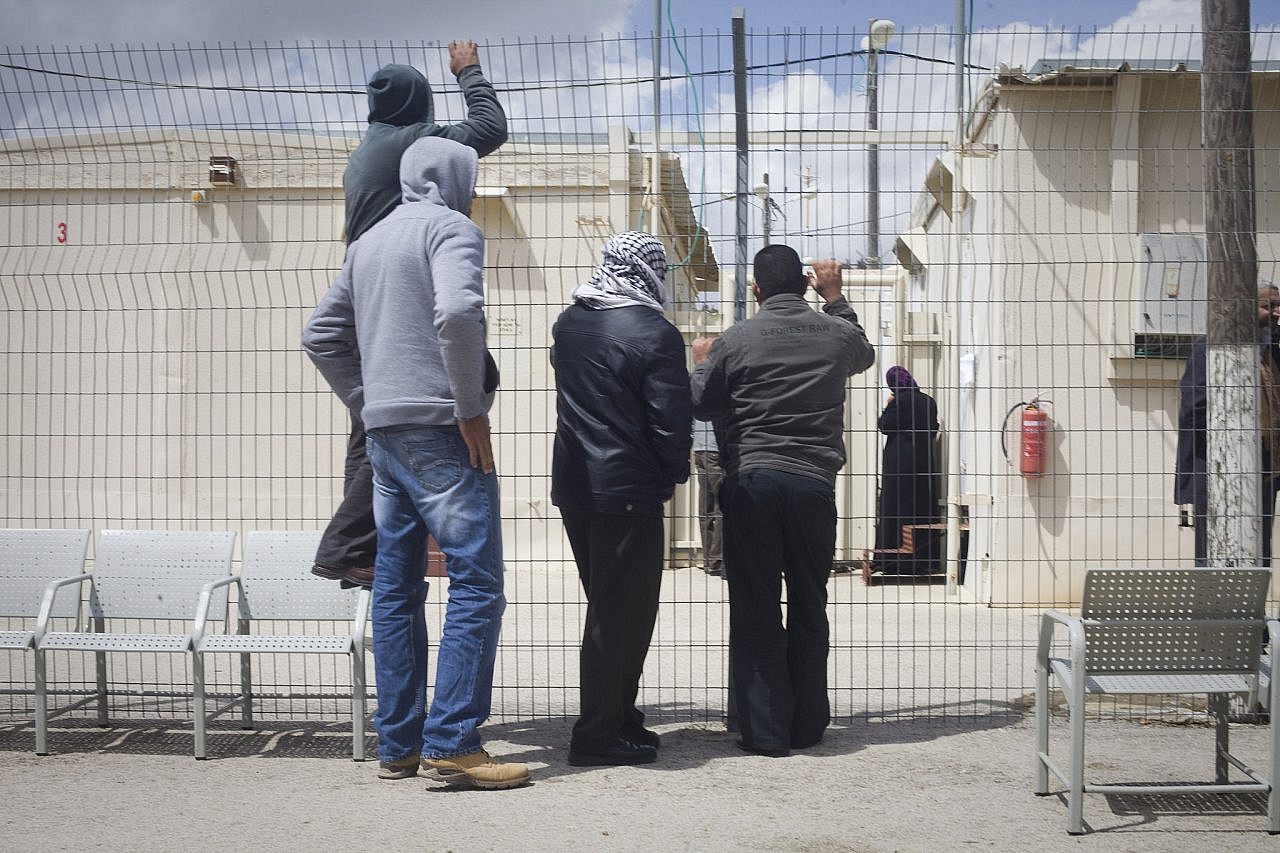
The turning point came with the wave of violence that erupted after the murder of the Palestinian teenager Mohammed Abu Khdeir by Jewish extremists. The courts in particular, and the law enforcement system more generally, became worse than their military counterparts. The mask fell away and the true face of ethnic supremacy was revealed.
Kangaroo courts were met with praise from senior government officials. Minors and women were executed without intervention from the legal system. In one instance, a police officer received a medal of recognition and compliments for “eliminating” in cold blood a minor holding scissors used for cutting paper. Instead of detaining, arresting, interrogating, and having people stand trial, the system was satisfied with a bullet to the head.
The situation was catastrophic. But the outrageous absurdity came from the halls of justice — from within the walls of the courts. The crafts of judging and prosecuting were combined, resulting in a mixture devoid of any humane relation to the circumstances of the minors and women who were tangled up in the wave of violence. Retribution was the goal, and every other judicial consideration was trampled under the brash foot of ethnocracy. I felt that I was no longer committed to this system. It’s not that I betrayed it – it betrayed me.
Methods that the regime uses to cause us to break are the stupidest in the world of politics. They are a kind of Pandora’s box, which it is completely forbidden to play with. The Israeli regime is the world champion at using this method. The mentality behind it is the product of a paranoid inheritance that comes from the depths of the history of the people of Israel: “In every generation, they rise up and seek to destroy us.” The Palestinians living between the river and the sea, whose only fault is their desire to live in freedom and dignity, are the natural victims of these methods.
The regime that advocates this method cannot be a partner in the peace process because the entrenched supremacy prevents it from being rehabilitated and integrated through equality. This supremacy excuses all the abusive behavior of the regime toward those who oppose it.
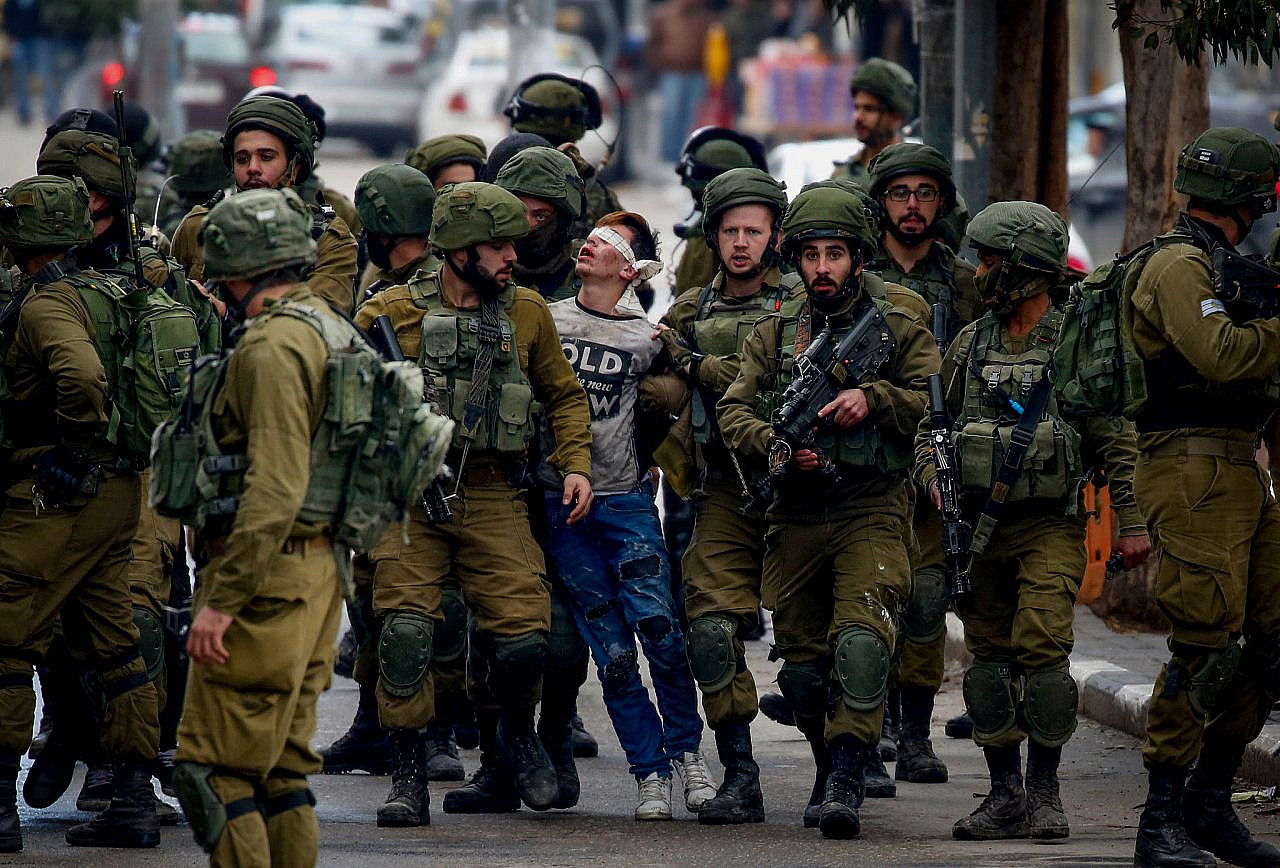
The end of ethnic supremacy is well-known. History shows that there is no escaping its condemnation, as happened in the case of apartheid in South Africa. As for Israel, this fate depends on the realization of two elements: the negation of the “temporary” status of the occupation, and the dwindling salience of the memory of the Holocaust.
These elements started to come to fruition when Israel chose the option of “managing the conflict” instead of resolving it. Micah Goodman, one of the regime’s prominent thinkers, understood its plight. And so he proposed a third option, which he called “shrinking the conflict,” meaning expanding Palestinian autonomy and improving the conditions for its functioning. He thought that an option like this one would save Israel from the trap it fell in after the 1967 war, which is expressed in the dilemma of choosing between the two principles that embody the political foundations of the state: Judaism and democracy.
I would suggest, to such intellectuals of the Israeli regime and its gatekeepers, to widen their perspective when they look at the Israeli-Palestinian struggle and not to focus on the social and political sciences. Here, for instance, is an example from a completely different field, which has the power to shed light on the essence and development of the struggle: zoology.
In South Africa, scientists encountered a strange phenomenon. A group of lions began to prey on the inhabitants of the villages surrounding its territory. The scientists were concerned, so they decided to study the phenomenon in depth and discovered the following:
The villagers used to be shepherds. Despite the fact that the group of lions lived in the same territory, there had been no records of unusual events. Both sides — the villagers and the lions — lived their lives in harmony. At a certain point, the villagers decided to start working the land. They abandoned shepherding. Around then, and after some time, reports of lions preying on villagers began to flow in. Over time, this became routine. The scientists determined that the reason for this was related to the territory. On the one hand, working the land caused the natural prey to leave, and on the other, the group of lions couldn’t go to another territory for a simple reason: this would cause conflict with other groups of lions. And so, the group was cornered and forced to prey on the villagers.
Most read on +972
The world behind bars robs you of what is most precious: freedom. And it overwhelms you with what is most humiliating: submission. A stream of daily humiliations is poured out on its inhabitants in the name of the debt owed to society.
This situation is doubly bad if the prisoner is marked as a “security” offender. Then the machine works tirelessly, wreaking havoc and destruction in every corner of his life. Every particle of this world is determined to break his soul. It starts with his prison cell and its colors, which radiate despair and exhaustion, and moves to the red yard, walking on which racks the nerves. The windows through which you see nothing but a forest of barbed-wire fences. In prison there are only people, no plants and no animals. In this concrete and iron box you don’t see the sky and you don’t walk on the earth. The prisoners are convinced that this is not the real world but a kind of harsh virtuality. An ongoing nightmare, and nothing else.
Do I regret my imprisonment after being convicted of carrying out attacks? That is a complicated question. But I definitely regret one thing: how did I let them push me into a corner?
A version of this article first appeared in Hebrew on Local Call. Read it here.

